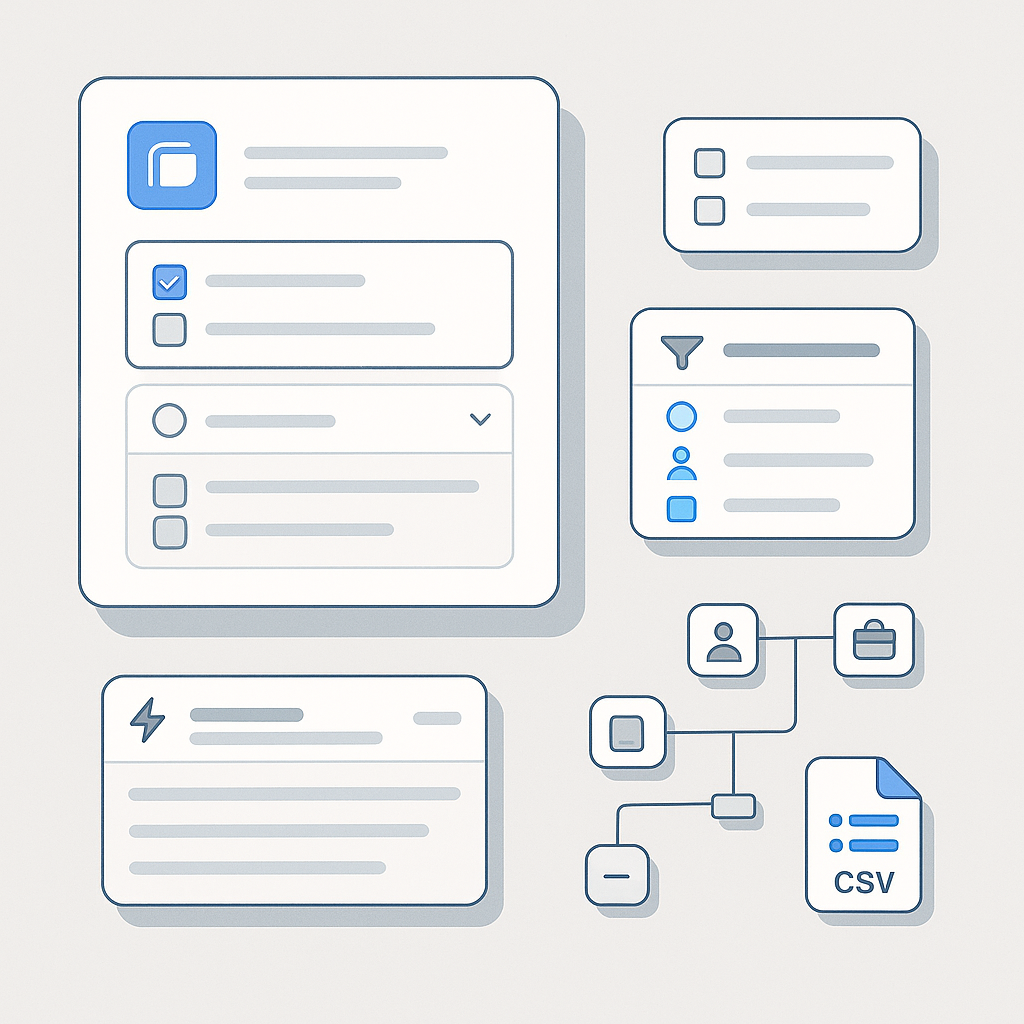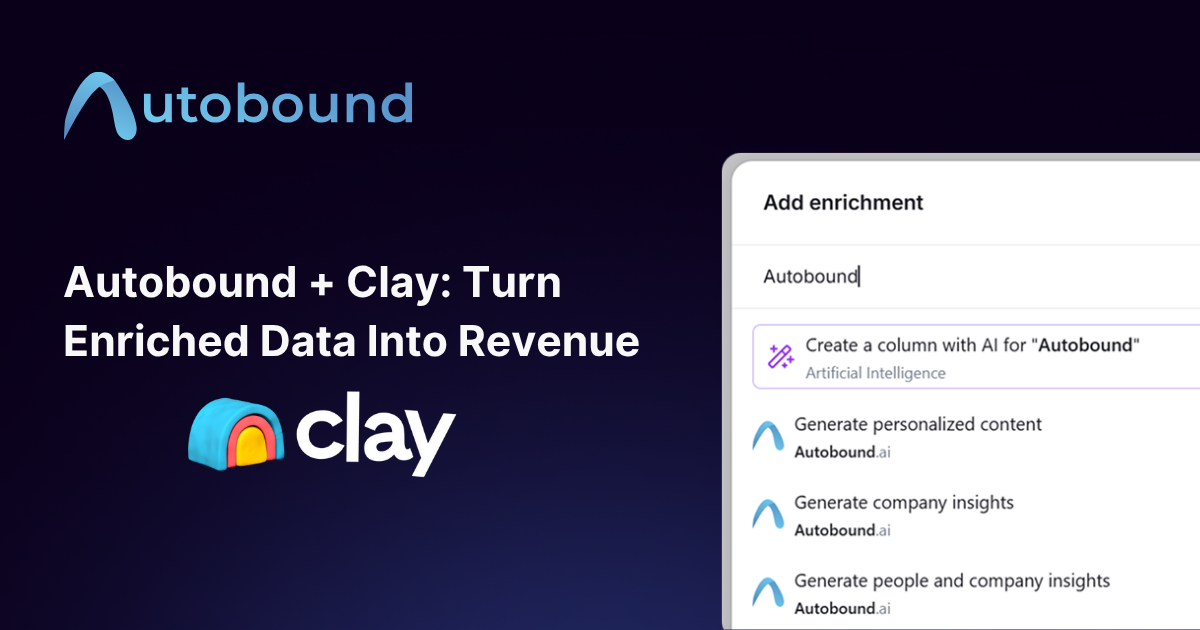I. Introduction: The Open API Opportunity
We live in a world where connections are everything, and in the fast-paced realm of B2B, those connections are increasingly forged through the power of APIs. Think about it: McKinsey Digital predicts that by 2025, the number of public APIs in the banking sector alone will have tripled. 23+ Amazing API Statistics for 2023 - Analyzing Alpha That's a tidal wave of change, and it's not just happening in finance—it's sweeping across every industry imaginable.
Why? Because open APIs, those ingenious doorways that allow different software systems to seamlessly communicate and collaborate, are rapidly becoming the backbone of modern business. For savvy companies offering integrations or those who recognize the immense potential of API partnerships, this translates to a landscape brimming with golden opportunities.
But how do you separate the gold from the gravel? The answer lies in understanding how to effectively identify and target companies that are actively launching open APIs—a strategic approach that can be a complete game-changer for B2B lead generation, strategic business development, and ultimately, driving exponential revenue growth.
II. Understanding the API-First Landscape
Now, the term "API-first company" might sound a bit like something out of a tech jargon dictionary, but it's actually a pretty straightforward concept. Essentially, it means that these companies are building their software with APIs as the very foundation, not just tacking them on as an afterthought. Imagine building a magnificent castle with Lego bricks—each brick (or API in this case) is modular, reusable, and can connect to others in countless configurations, creating a structure that's both flexible and incredibly powerful.
This API-first approach is gaining serious momentum, and it's not hard to see why. In today's hyper-connected world, integrations are no longer a "nice-to-have" but a "must-have." Businesses and customers alike crave tools that work together seamlessly, and APIs are the magic that makes it all happen.
This shift towards an API-first world is being driven by a confluence of factors. First and foremost, integrations are no longer optional—they're essential. Customers expect their software to play nicely together, and businesses that can't deliver on that expectation are going to get left behind. Second, APIs are like rocket fuel for time-to-market. They allow companies to launch new features and integrations at lightning speed, giving them a competitive edge in today's fast-paced business environment. And let's not forget the booming API economy—a vibrant ecosystem of businesses built around APIs is rapidly emerging, creating a wealth of opportunities for those who are paying attention.
Targeting API-first companies offers a distinct advantage. These are the trailblazers, the innovators who inherently understand the power of partnerships and are more likely to invest in integrations that enhance their offerings. They're not just keeping pace with the relentless march of technology—they're setting the pace.
And according to Gartner, this pace is only going to accelerate. They predict that API demand will skyrocket by over 30% by 2026, fueled by the rise of AI and LLMs. Checking in on 2024 API Trends - digitalML That's a wave you definitely want to catch.
III. Identifying Companies Launching Open APIs
Here's the challenge, and it's a big one: the earlier you can connect with a company that's in the process of launching open APIs, the better your chances of forging a mutually beneficial partnership or closing a lucrative deal. But pinpointing these companies early on can feel like searching for a rare seashell on a beach that stretches to the horizon.
But don't despair, there are ways to improve your odds. The key is to become a detective of sorts, learning to spot the subtle clues and signals that indicate a company might be gearing up to launch open APIs.
Start by scouring their website for any announcements about new APIs or developer programs. These are often tucked away in news sections, blog posts, press releases, or dedicated API documentation pages. Next, dive into the vibrant world of developer communities like Stack Overflow and GitHub. These online forums are teeming with developers who love to talk shop, and you might just stumble upon a thread or discussion about a company's API plans. Keep a close eye on job postings as well. Companies that are serious about APIs are going to need talented individuals to build and manage them. Look for roles like "API Product Manager," "Developer Evangelist," or "Technical Partnerships Manager"—these are strong indicators that a company is investing in their API ecosystem. Industry events and webinars are also prime hunting grounds. Companies often use these platforms to make big announcements, and you might just catch wind of a new API initiative. And don't underestimate the power of technology tracking tools. These tools can give you a glimpse behind the curtain, revealing insights into a company's technology stack and helping you spot early API adoption.
The real magic, however, lies in transforming these disparate signals into actionable intelligence. This requires seamless collaboration between sales and marketing teams. By sharing insights, coordinating their efforts, and acting swiftly, they can capitalize on these time-sensitive opportunities.
IV. Crafting Your B2B Messaging and Positioning
Congratulations, you've identified them—companies that are ripe for API integration and ready to embrace the power of interconnectedness. Now comes the art of crafting a message that not only grabs their attention but also compels them to take action. Remember, you're not just selling a product or service; you're offering a solution to their unique challenges and a pathway to achieving their ambitious goals.
The first rule of effective communication is to speak the language of your audience. In this case, that means understanding the specific pain points, priorities, and aspirations of companies that are launching open APIs. Are they obsessed with speed and efficiency, eager to get their API program up and running in record time? Do they place a premium on a seamless developer experience, seeking out top-notch documentation, SDKs, and responsive support? Security and reliability are non-negotiables in the API world—reassure them that you've built your solutions with these critical factors in mind. If they're looking to monetize their APIs, showcase how your solution can help them reach a wider audience and accelerate adoption.
But don't just tell them, show them. Case studies and social proof are incredibly persuasive tools. Highlight successful integrations or partnerships with other API-first companies. For example, Autobound, a platform designed to help businesses scale personalized outreach, has a wealth of testimonials from users who've experienced remarkable improvements in engagement and efficiency. “Autobound Testimonials | See why we ranked #1 on G2†Let their success stories serve as a powerful testament to the value you bring to the table.
V. Effective Sales and Marketing Strategies
Crafting the perfect message is only half the battle. To truly succeed, you need a robust strategy to deliver that message to the right people at the right time. Here's where the rubber meets the road:
- Account-Based Marketing (ABM): This laser-focused approach is tailor-made for targeting companies launching open APIs. It's all about precision—identifying key accounts, developing hyper-targeted content that speaks directly to their needs, and personalizing every interaction to create a sense of genuine connection. Tools like Autobound can be invaluable in this regard, automating personalized outreach at scale by intelligently referencing a prospect's API-related news or activities. “Autobound ranks #1 32 times, unveils game changing featuresâ€
- Content Marketing: In the world of B2B, content is king. Establish yourself as a thought leader in the API space by creating and sharing insightful blog posts, white papers, ebooks, or even interactive quizzes that address the challenges and opportunities of API integrations. Don't forget about SEO—optimize your content with relevant keywords to attract organic traffic from companies actively researching API-related topics.
- Partnerships and Co-Marketing: The API world is all about collaboration. Forge strategic alliances with complementary technology providers and explore joint webinars or events that target your ideal audience. By joining forces, you can expand your reach, tap into new markets, and create a win-win scenario for everyone involved.
- Sales Enablement: Your sales team is on the front lines, so it's crucial to equip them with the tools, knowledge, and resources they need to succeed. Provide comprehensive training on API-related concepts, arm them with compelling sales materials, and empower them to engage effectively with technical decision-makers.
- Measuring Success: You can't improve what you don't measure. Establish clear metrics to track the effectiveness of your targeting efforts, such as website traffic, content downloads, lead generation, and closed deals. By analyzing these metrics, you can fine-tune your approach, identify areas for improvement, and ensure that your efforts are delivering a solid return on investment.
VI. Future Trends in the API-First World
The API landscape is in a constant state of flux, and staying ahead of the curve is essential for long-term success. Here's a glimpse into what the future holds:
- AI and Machine Learning: Get ready for a new era of intelligent integrations. AI and ML will play an increasingly vital role in automating API development, personalizing API experiences, and unlocking deeper insights from API data. Gartner's prediction of a 30% surge in API demand by 2026 due to AI underscores the transformative potential of these technologies. Checking in on 2024 API Trends - digitalML
- The Evolving Role of the SDR: As AI takes over more routine tasks, SDRs will have the bandwidth to focus on higher-value activities, such as building stronger relationships, crafting more strategic outreach, and providing personalized guidance to prospects. Industry trends suggest this shift towards a more strategic and less manual approach.
- Increased Focus on Security: With great power comes great responsibility. As the API economy expands, security will remain paramount. Companies launching open APIs will demand robust security measures and unwavering reliability, making it a critical differentiator for solution providers.
VII. Conclusion: Seizing the API Opportunity
The world is becoming increasingly interconnected, and open APIs are the threads weaving this intricate web. For B2B sales and marketing teams, targeting companies launching open APIs is no longer a niche strategy—it's a necessity. By understanding the API-first landscape, identifying the right signals, crafting compelling messaging, and implementing effective strategies, you can unlock a world of opportunity. The future of B2B growth is connected, and those who embrace the power of APIs will be the ones leading the charge.
About Autobound
Autobound's leading AI-powered platform delivers 350+ unique insights for go-to-market teams from financial filings, social media activity, 35 news events, competitor trends, job changes and more. Trusted by 7,000+ companies including TechTarget and validated by 220+ 5-star G2 reviews, we're unlocking hyper-personalization at scale, with native integrations for Salesloft, Outreach, and more. Leverage our developer-friendly API, try our Chrome extension, try our platform free, or contact our team to eliminate guesswork and drive measurable growth →
Built with love in San Francisco, CA




